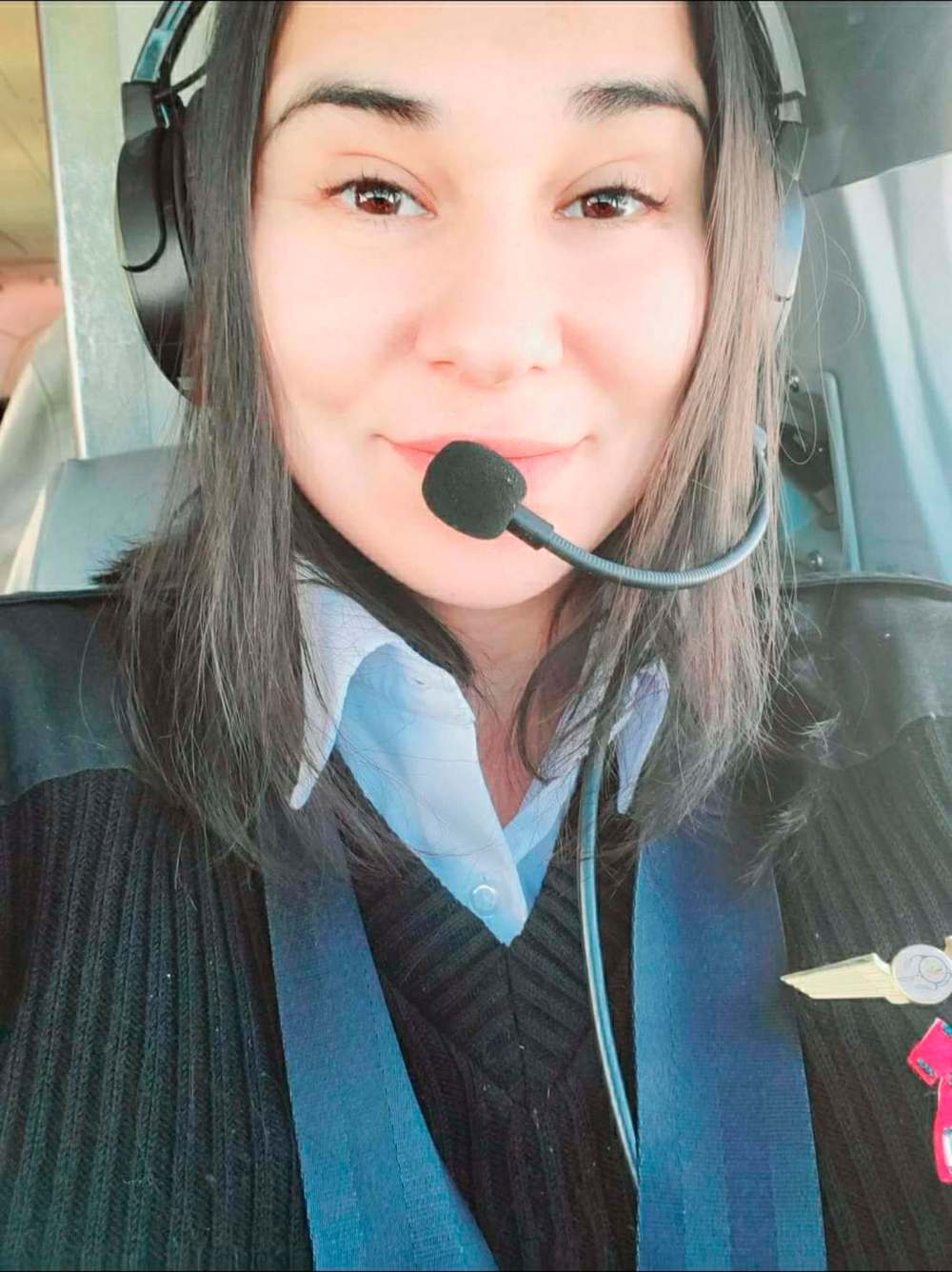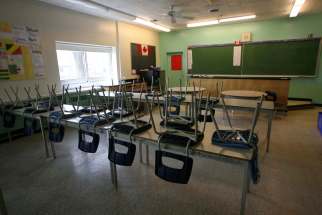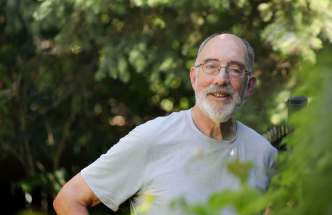Trail-blazing pilot calls out province’s security screening process
Read this article for free:
or
Already have an account? Log in here »
To continue reading, please subscribe:
Monthly Digital Subscription
$0 for the first 4 weeks*
- Enjoy unlimited reading on winnipegfreepress.com
- Read the E-Edition, our digital replica newspaper
- Access News Break, our award-winning app
- Play interactive puzzles
*No charge for 4 weeks then price increases to the regular rate of $19.00 plus GST every four weeks. Offer available to new and qualified returning subscribers only. Cancel any time.
Monthly Digital Subscription
$4.75/week*
- Enjoy unlimited reading on winnipegfreepress.com
- Read the E-Edition, our digital replica newspaper
- Access News Break, our award-winning app
- Play interactive puzzles
*Billed as $19 plus GST every four weeks. Cancel any time.
To continue reading, please subscribe:
Add Free Press access to your Brandon Sun subscription for only an additional
$1 for the first 4 weeks*
*Your next subscription payment will increase by $1.00 and you will be charged $16.99 plus GST for four weeks. After four weeks, your payment will increase to $23.99 plus GST every four weeks.
Read unlimited articles for free today:
or
Already have an account? Log in here »
Hey there, time traveller!
This article was published 20/08/2020 (1937 days ago), so information in it may no longer be current.
She made history as one of the first Indigenous women to become a pilot in Manitoba. Now, Robyn Shlachetka is raising questions about the province’s screening process for flight crews travelling to northern circuit courts.
The 35-year-old Keewatin Air pilot says she was denied security clearance from Manitoba Justice this summer to fly to and from circuit court locations — even though she has no criminal record, passed vulnerable-sector and child-abuse checks, and has more than 12 years flying experience, including previous circuit court runs.
Shlachetka wasn’t told why she was rejected. She was told she couldn’t reapply or contact provincial staff about the decision.

“I think I had some red flags, because on the application itself… (It asks) ‘Do you know anyone with a criminal background?'” said the Cree/Sioux mother of five who lives in Thompson.
“If you’re from the North, from Thompson, especially, and living up here, there’s… such a high crime rate and such a high poverty rate and stuff, it’s almost impossible to not be involved or not be a conflict in some way, shape or form by their standards. And I feel like Indigenous people, we tend to have larger families… and it’s as simple as one relative committing a crime,” she said.
Thompson has consistently had some of the highest violent-crime rates in Canada.
Shlachetka said the home she shares with her partner was broken into last year by machete-wielding intruders who killed the family dog. About a month later, the home was destroyed in an electrical fire, and she said RCMP later sought a search warrant.
Shlachetka said she believes she’s under undue police suspicion, despite never being involved with any criminal activity.
As part of her security screening application, a copy of which she provided to the Free Press, Shlachetka was asked to disclose whether she, her spouse or anyone in her immediate family had ever been involved in the justice system, whether criminally charged, convicted, or as a witness or victim.
She indicated two relatives had criminal records; neither she nor her spouse have been convicted of a crime. Apart from a criminal record check, she was required to consent to a credit check and checks on other police databases, as well as online checks, including her social media presence.
“If you’re from the North, from Thompson, especially, and living up here, there’s… such a high crime rate and such a high poverty rate and stuff, it’s almost impossible to not be involved or not be a conflict in some way, shape or form by their standards. And I feel like Indigenous people, we tend to have larger families… and it’s as simple as one relative committing a crime.” – Robyn Shlachetka
The application asked if she knew anyone currently incarcerated, if she knew any current or former gang members, if she was associated with any organization that would demand loyalty from her or if she had any “personal vulnerability” that would leave her susceptible to taking bribes.
Shlachetka answered no to all of those questions, but she says she was questioned at length in a subsequent interview about her social media network.
She had never asked online connections about their potential criminal histories, she said. Strangers reached out to her on social media after she was featured along with co-pilot Raven Beardy in a 2018 CBC News article about Manitoba’s first Indigenous female medevac team.
“After me and Raven made the news, I had hundreds of Facebook requests, and I added a ton of people not even checking to see who those people were, because it’s social media, it’s not a reflection of who I’m friends with,” Shlachetka said.
“The interview, honestly, felt like a formality, like they’d already decided I wasn’t going to be cleared.”
Shlachetka, who is from Wabowden, had been operating medevac flights in Manitoba, but applied for a position transporting court personnel because it offered a schedule that would allow her to return home to her children each night.
“The interview, honestly, felt like a formality, like they’d already decided I wasn’t going to be cleared.” – Robyn Shlachetka
It’s the same job she did for several years for a previous employer.
Additional security screening was introduced last year, after the province awarded a new contract to private companies providing government air travel, a Manitoba Justice spokesperson wrote in a statement, adding pilots are required to pass the screening in order to fly for Manitoba Justice.
Manitoba Justice confirmed provincial staff conduct the security screenings, but declined to disclose the specific standards required of pilots to “ensure the integrity of our security screening methodology.”
Provincial policy states security screenings including criminal record checks are required.
The Free Press asked the justice department for more information about the screening Shlachetka went through, and received a statement from the minister’s office that simply expressed confidence in the process.
NDP MLA Nahanni Fontaine, justice critic for the Opposition, said she contacted the justice minister to try to give Shlachetka another chance to apply. She said her case is “a clear example of systemic racism.”
“Indigenous Peoples are facing generational experiences within the judicial system, because that’s what the system was set up for and that’s how it operates against our people. And here she is, she’s being penalized and punished for things that are beyond her control, despite accomplishing something extraordinary.” – NDP MLA Nahanni Fontaine
“Indigenous Peoples are facing generational experiences within the judicial system, because that’s what the system was set up for and that’s how it operates against our people. And here she is, she’s being penalized and punished for things that are beyond her control, despite accomplishing something extraordinary,” Fontaine said.
katie.may@freepress.mb.ca
Twitter: @thatkatiemay

Katie May is a general-assignment reporter for the Free Press.
Our newsroom depends on a growing audience of readers to power our journalism. If you are not a paid reader, please consider becoming a subscriber.
Our newsroom depends on its audience of readers to power our journalism. Thank you for your support.






